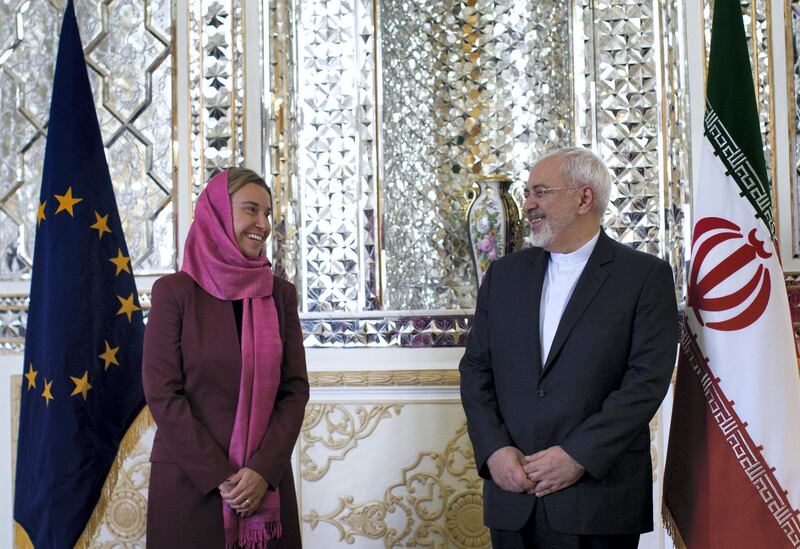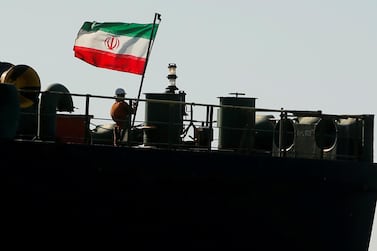An Iranian tanker with $123 million worth of crude oil that Britain said was intended for the Syrian regime has left Gibraltar after a six-week detention without a whimper from Brussels.
The saga has made clear that European Union's priority is to keep Iran in the 2015 nuclear accord, seen as the bloc’s only major external feat, regardless of misgivings over Tehran’s policies beyond issues related to the deal.
Wherever the tanker formerly known as the Grace I ends up, its interception and release embody the EU's enduring divisions and the toothlessness of its sanctions when it comes to curbing Iranian backing for the regime of President Bashar Al Assad.
Except for US support, London has stood alone since British Royal Marines seized the Grace I off the Gibraltar coast on July 4. Downing Street said its 2.1 million-barrel cargo was headed to Syria in contravention of EU sanctions.
The tanker, renamed the Adrian Darya I a few days ago, left Gibraltar on Sunday night on a course for Greece, but it is free to change direction. Gibraltar, a British territory subject to jurisdiction from London, had rejected US legal moves to keep holding the tanker, saying the territory had fulfilled EU laws.
The last-minute legal drama and the rifts between the US and Europe over Iran overshadowed the reason Britain detained the tanker.
It was a rare instance of a European country challenging Iran’s support for the Syrian regime, a concern the EU has buried despite its aim of stopping the killing of Syrian civilians and finding a solution to the conflict.
Even when Iran in apparent retaliation seized a British-flagged tanker, the Stena Impero, near the Strait of Hormuz on July 19, there was little in the way of outright European condemnation.
The EU has been more verbal in criticising the Assad regime, imposing sanctions on the regime since 2011 but keeping its mission in Damascus open.
The main member states – Britain, Germany and France – closed their embassies a year after the Syrian regime’s crackdown on a peaceful protest movement escalated into an armed uprising in which it has killed and disappeared thousands of civilians.
In a surprise move in March 2016, the EU foreign policy chief Federica Mogherini met in Geneva with the regime’s main negotiator, Bashar Al Jaafari, without informing Paris or London, despite being in the two capitals just days before. It was the EU's highest-level meeting till date with a regime largely ostracised by the West for its actions.
“Not only had she failed to tell the member states, she gave the Syrian regime a free gift,” said a European diplomat based in Brussels.
Since then meetings between the EU’s External Action Service and Syrian regime officials have been fairly regular, according to EU sources.
Fawaz Tello, a prominent Syrian opposition figure, said the EU's actions regarding the Syrian conflict had been half-hearted.
"Europe has outsourced the refugee problem to Turkey and finding a solution to Russia, regardless of how Moscow goes about it," Mr Tello told The National from Berlin.
Mr Tello said the bloc had in effect stuck by three premises that guided the approach of many member countries towards Syria even before the uprising.
“Many in Europe still believe that this Alawite regime is good for minorities, that the alternative would be what they regard as Sunni terrorism, and that it is the best for keeping the front with Israel stable,” Mr Tello, who is not affiliated with any of the current opposition groups, said.
“On all three counts they are wrong.”






